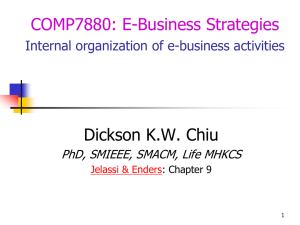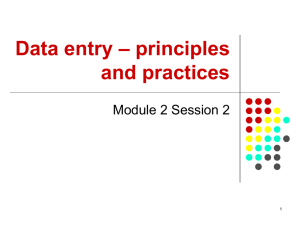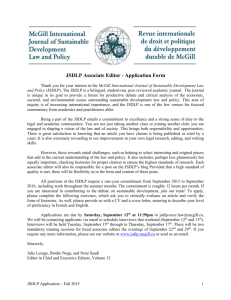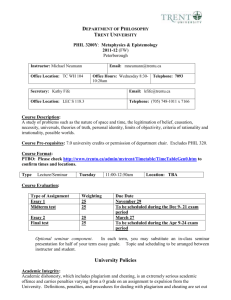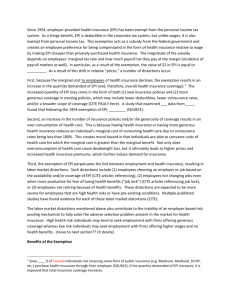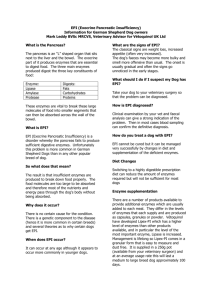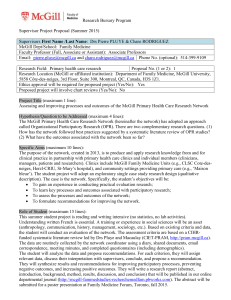Genetic epidemiology
advertisement
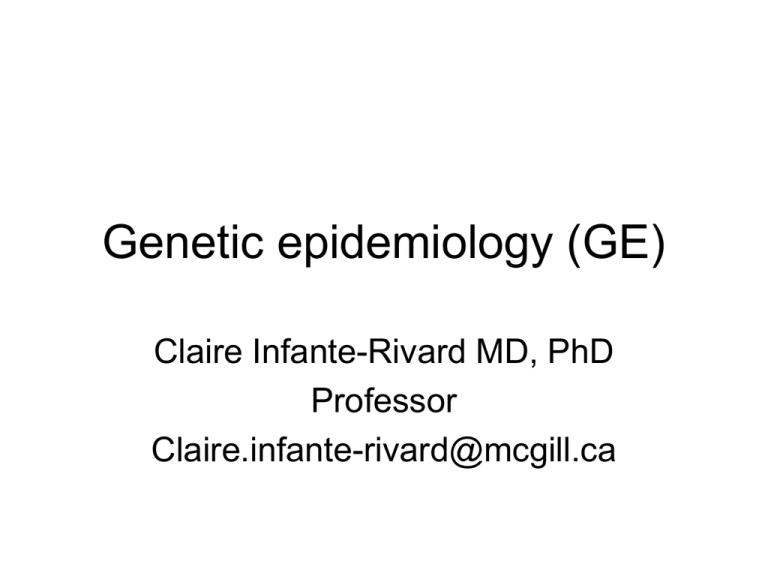
Genetic epidemiology (GE) Claire Infante-Rivard MD, PhD Professor Claire.infante-rivard@mcgill.ca 1. Applications • My initial plan • Instead: A story to convince you that GE can “change daily life” (or at least have an impact on your perception of it) – From Hauser SL, Johnston SC (Editors). Message from the Editor. Journeys in complex genetics: Music and Mental Illness. Ann Neurol 2009;66(1):A7-A9 Music, mental illness and genes End of story! • I rest my case about the “applications” of GE • All common complex diseases (cancer, autism, asthma, infectious diseases), and conditions (fitness, attention deficit disorder, ability to metabolize drugs, taking up smoking, etc.) have a genetic susceptibility component. • It can no longer be ignored in our studies • Can we intervene on the effects of common gene variants? Probably not often yet but certainly not impossible (but we are still uncertain about how to change smoking behaviour, the effects of which have been know for 50 years) 2. What does this research entail? Similarities with epi • The science is the same as with any other epidemiological study (research Q) • The most frequently used design in GE is the case-control study (familiar territory) • De novo and database studies are possible (with the latter growing but there are issues) • Methods: design and analysis are fundamentally the same 2. What does this research entail? Some differences with epi – Vocabulary is a hurdle! (papers have lexicons) – A DNA sample is needed (easy methods; can be collected at any time; sample handling issues; ethical issues) – Sample size is always an issue but here more than anywhere else (Gene-environment interaction) – Costs are impressive: (0.10c/SNP*1000SNP*3000s) – Often more biologically oriented 2. What does this research entail? • Research team: highly multidisciplinary (epi, stats, mol biol, genomics, bioinformatics, biochemistry, population genetics, clinical, etc.) • Results: published in all journals, including our own, which are eager to publish GE studies 3. Funding • Usual funding agencies are very open to this type of research – They now accept to fund pooled studies, which often implies national funding for national data and then international funding for pooling • Pathway studies are more accessible for regular funding than genome-wide association studies (GWAS) 4. Career opportunities • Academia • Industry • Counselling at government level Opportunities at McGill • GE training program (Trainee Funding) d • There is a large network of GE-involved investigators who have databases (appropriate for M. Sc and PhD theses) • Do not hesitate to ask for more information








